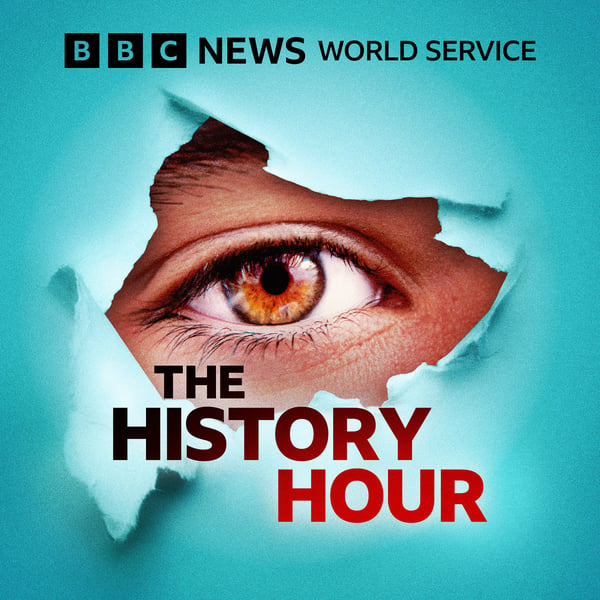Women making a mark
The History Hour
BBC
4.4 • 879 Ratings
🗓️ 7 December 2024
⏱️ 51 minutes
🧾️ Download transcript
Summary
In partnership with the BBC 100 Women list, we have a selection of stories about inspiring and influential women from around the world.
Scientist Katalin Karikó, who won the Nobel Prize and helped save millions of lives in the Covid 19 pandemic, Julia Gillard, the former Australian prime minister who took a stand against misogyny in politics, and Indian artist Nalini Malani whose instillation got people thinking about the consequences of nuclear conflict.
We also hear from the founder of Ms Magazine, the feminist campaigner Gloria Steinem who in 1972, co-founded the first magazine in the US which was owned, run and written by women.
And the story of Portugal's "Three Marias" whose book ‘Novas Cartas Portuguesas’, was banned after it was published.
Contributors:
Maria Teresa Horta - one of the "Three Marias".
Dr Katalin Karikó - Nobel Prize winning scientist.
Valeria Perasso - Team leader at the BBC's 100 Women project.
Julia Gillard - Former Australian Prime Minister.
Nalini Malani - Indian artist.
Gloria Steinem - Co-founder of Ms Magazine.
(Photo: Nalini Malani. Credit: Ritesh Uttamchandani/Hindustan Times via Getty Images)
Transcript
Click on a timestamp to play from that location
| 0:00.0 | Hello and welcome to The History Hour podcast from the BBC World Service with me, Max Pearson, |
| 0:10.0 | The Past, brought to life by those who were there. This week, stories about influential women from the past |
| 0:16.4 | in partnership with the publication of this year's BBC 100 Women List. Among the women we feature, |
| 0:22.8 | those oppressed by 1970s Portuguese society, also the former Australian Prime Minister, Julia |
| 0:28.8 | Gillard on Misogyny in Politics, Gloria Steinem, founder of Ms. Magazine, and the Nobel Prize-winning |
| 0:35.8 | scientist Katalin Kariko, whose work gave us the COVID vaccine. |
| 0:40.2 | It was 2020 and it was November 8th. And so then the call came and O'WOLC told me how good |
| 0:47.5 | the phase three result was and I just told my husband, oh, it worked. That's all come out later in the podcast. |
| 0:56.0 | But first, the three marias. |
| 0:58.6 | In May 1974, people gathered in the Portuguese capital, Lisbon, |
| 1:03.1 | to see whether three women would be sent to jail for writing a book. |
| 1:07.2 | Maria Teresa Orta, Maria Vejo da Costa, and Maria Isabel Bahenio wrote the book, |
| 1:13.4 | Novas Carta Portugueseas, which was banned after it was published, and they were put on trial. |
| 1:18.9 | The case became famous around the world. |
| 1:21.7 | Laura Jones has been listening to an archive interview with one of the three Marias. |
| 1:33.5 | It was time in Portugal for women to have a say about sexuality. |
| 1:39.4 | Women's sexuality was attributed to the husband, to the man with whom they lived. |
| 1:43.4 | If the man prefers such and such, so would she. |
| 1:48.5 | This was such a suffocating thing I used to talk about with women. |
| 1:54.7 | This is Maria Theresa Oter, a Portuguese feminist poet, journalist and activist. I was born in a country that wanted freedom, a terrible country, a country of police, a country of cruelty, |
| 2:05.3 | a country of imprisonment and torture. And I found myself at a very early age saying, |
| 2:12.2 | it's not possible. The authoritarian dictatorship of the Estadu Novo, or New State, was in power, with Prime Minister Antonio de Oliveira Silazar in charge. |
... |
Transcript will be available on the free plan in -110 days. Upgrade to see the full transcript now.
Disclaimer: The podcast and artwork embedded on this page are from BBC, and are the property of its owner and not affiliated with or endorsed by Tapesearch.
Generated transcripts are the property of BBC and are distributed freely under the Fair Use doctrine. Transcripts generated by Tapesearch are not guaranteed to be accurate.
Copyright © Tapesearch 2025.

